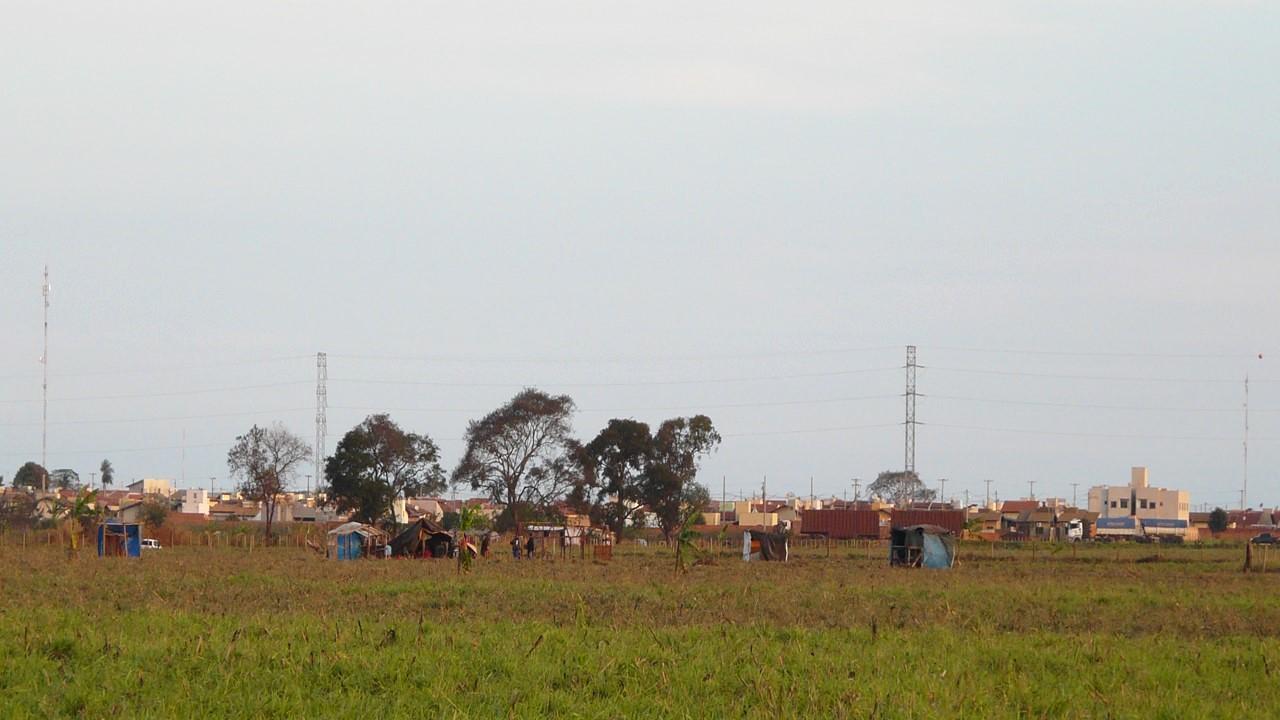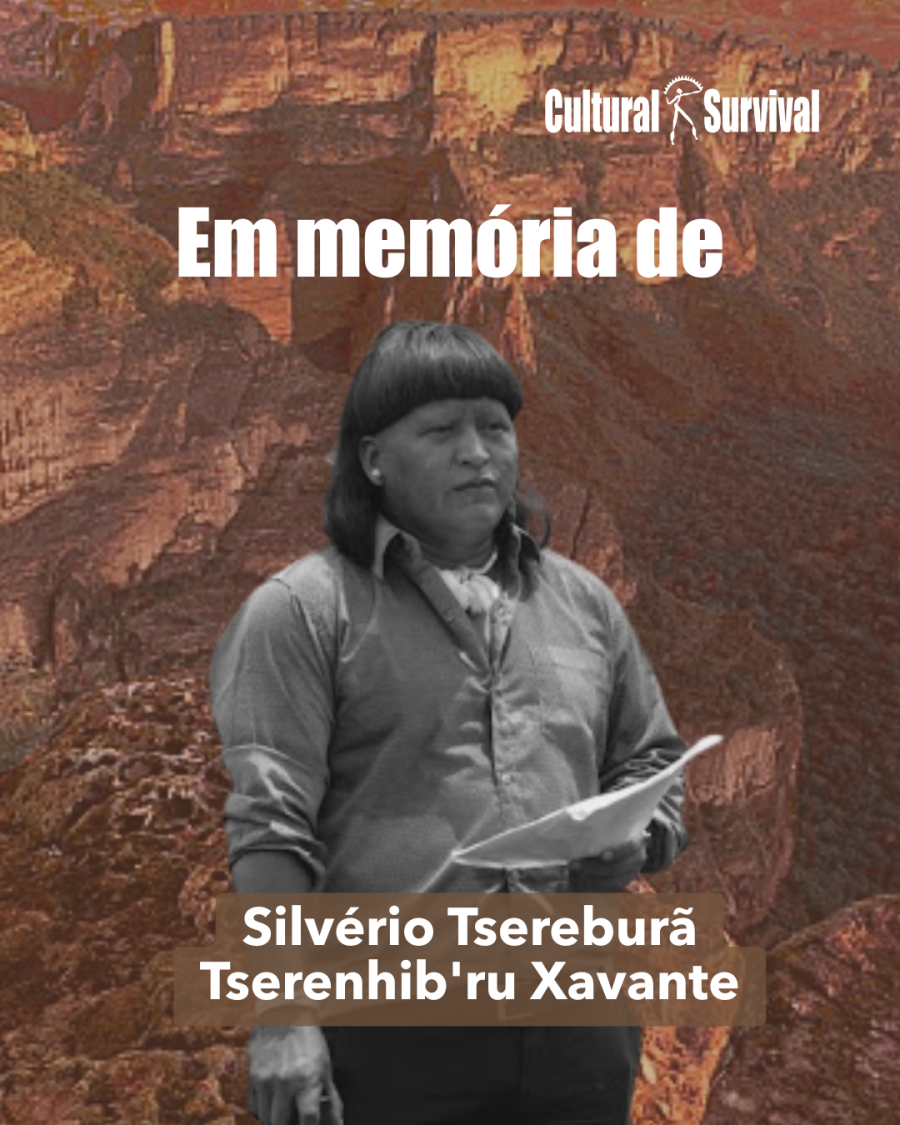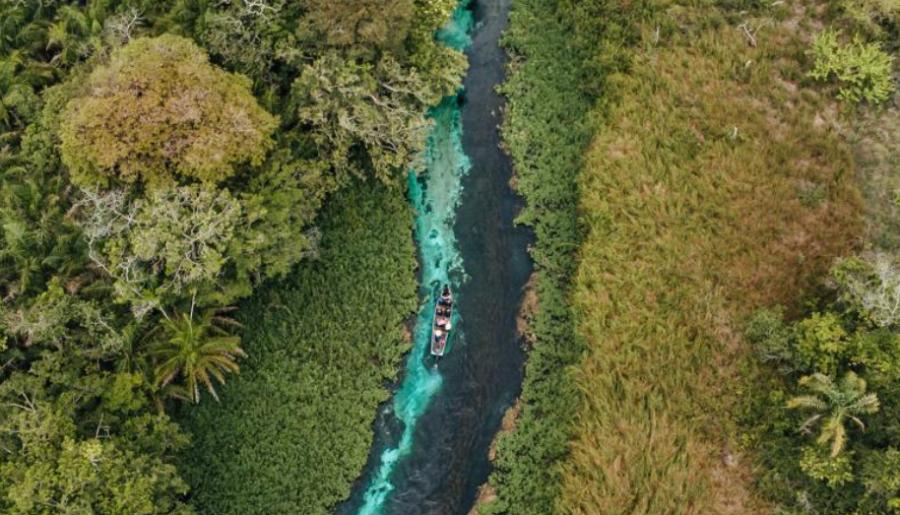
By Antonio A R Ioris
“…we know that we are going and we want to be killed and buried with our ancestors here where we are today, so we ask the Government and the Federal Justice not to decree our eviction/expulsion, but we request to decree our collective death and to bury us everybody here. We ask, once and for all, to decree our decimation and total extinction, in addition to sending several tractors to dig a large hole to throw and bury our bodies.”
Letter Guarani-Kaiowá of Pyelito Kue (2012)
What to do and what to say when the world is collapsing into social, cultural and ecological catastrophe? How to react to problems that seemed to belong to history books, but which constantly re-emerges in even more threatening and devastating ways? How to prevent further grabbing and commodification of ancestral lands and shared resources? These are not rhetorical questions, but reverberations of a daily struggle. I am sure that many readers have heard about the Guarani First Nation of South America, which could include, for example, narratives about the imposing architecture and a complex society managed by Jesuit priests in the centre of the continent in the 18th century. Some may also be informed about the ongoing violence against the Kaiowá, one of the Guarani peoples, in the Brazilian state of Southern Mato Grosso (considered the Gaza Strip of Brazil). But few will be fully aware of the scale of land rights violations, systematic killing of adults and children, ferocious discrimination against people living in precarious settlements along the roads or in the periphery of the cities, widespread suicides of youngsters and teenagers, serious levels of food insecurity, and the hideous association between large-scale landowners, politicians and law officers. If you think that you know about the Kaiowá/Guarani, it is quite possible that you need to think again. It is worse, much worse. There is no other way to describe the situation of the Kaiowá under the advance of soybean and sugarcane production (among other crops) than genocide.
Many authors rightly propose a broader, more sociological understanding of genocidal practices than just the physical elimination of a determinate group of people, but including also cultural destruction, social death and ecological devastation (ecocide). This is extremely relevant here. The Kaiowá/Guarani have been suffering from the convergence of all those genocidal processes, aggravated by the political arrogance of export-based agribusiness farmers, national and international land-grabbing investors, and the dishonest movements of a powerful regional elite (who have been illegally appropriating land from Indigenous people for several decades). Recurrent violence against the legitimate land proprietors –Indigenous people – is in direct breach of the elementary principles of the Brazilian constitution (articles 231 and 232, in particular), but the local judges, civil servants and politicians have firmly decided against the Kaiowá. This tendency in favour of the most powerful has correspondence with the wider problem of non-consensual expropriation of Indigenous people’s lands around the world. Basic elements to justice, such as the native people’s inherent domain over their territories, the international principle of Free, Prior and Informed Consent (FPIC) and the International Labour Organization’s 169 Convention, signed by Brazil, have been overlooked in the case of the Kaiowá. Those violations are rationalised on the grounds of the benefits of agribusiness, the need to accept the costs of development and lack of merit of Indigenous Peoples (as it is often the case, the blame is on the victim for their own misfortune).
We neither need to revisit the tragic pages of colonial history when thousands of Indigenous Peoples were exterminated because of the European invasion, nor discuss the mass killing during the Paraguay War (1864-1870), the bloodiest in the continent and that took place right in the middle of the Guarani territory. The recent history of Brazil suffices to demonstrate power inequalities and the application of brutal force validated by various legal subterfuges. The Brazilian legislation in the second half of the 19th century clearly guarantee the user rights of Indigenous Peoples, but that did not prevent the concession of millions of hectares of Guarani land to the Matte Larangeira company, which explored the native mate herb (erva-mate) through the scandalous, but tolerated, enslavement of Indigenous people. After 1920, large farms were opened by migrants attracted to the region from the south of Brazil in the context of the new economic frontier promoted by the national government. The Kaiowá were violently forced to leave their land and witnessed the cutting of the forests that give them their name (‘people of the forest’). A small number of reserves were created by the newly established, and highly inefficient and corrupt, Indian Protection Service (SPI), what generated a range of new problems due to the agglomeration of different groups and families in very small areas. It led to a common exploitation of Indigenous labour, drastic change of traditions and the degradation of communities. A more recent phase initiated in the 1950s with the intensification of commercial agriculture and, after the 1990s, the exponential growth of plantation farms. The region where most Kaiowá live in Southern Mato Grosso is well known for its excellent, red soils – it is claimed by the Kaiowá/Guarani that it is red because it contains their own blood – which were pursued and appropriated by large-scale landowners and all the usual transnational corporations.
It is crucial to engage with Indigenous people and reflect with them upon their current situation, the causes of their unhappy fate and the reasons for precluding the possibility of politico-economic recognition and a decent future (as any other South American or global citizen). We have tried to do exactly that through a growing collaboration between Cardiff University and the Federal University of Great Dourados (UFGD) in Brazil, in particular its Department of Geography and the Intercultural Indigenous College (FAIND). See this relevant statement collected from a Kaiowá during fieldwork in Brazil in August 2018:
“Agriculture was a pleasure before the arrival of the karai [non-Indigenous people]; now it is a pain… Today everything is paid, we have to pay for boreholes, to have water, to maintain the river. We have been exploited and they continue to exploit us… But Indian is not the problem, we are the solution.”
This powerful trend of land privatisation and nature commodification, aggravated in recent years by global market pressures, has caused the expropriation of most of their remaining areas, ignoring not only their ancestors’ legitimate rights over the land, but the vital association between Kaiowá’s identity, culture, religion, livelihood and the land where they were born and their relatives were buried. It is essential in the life of the Kaiowá the regular interaction with other family members and the constant movement in the region, which plays a role in both the production of space and in the affirmation of socio-cultural norms and values. Land had never been a private property with titles and fences; life was not centred around the individual, but the family; agriculture was part of their cosmology, not the cultivation of genetically modified crops for the global market. In the words of a resident in the Indigenous Reserve Panambizinho, interviewed in 2018:
“Agriculture practices [by Indigenous people] may change, but the spirituality remains, it is inside us, we continue to believe in the spirits. We drink from the spring of spirituality, appreciate its value. The seed of maize has a soul, but transgenic maize is poisonous.”
The application of violence and the containment in unwanted areas have only reinforced the bitter sense of genocide. It has been a regular experience of social, ecological, cultural and physical death. Between 2003 and 2016, there were 1,009 murders of Indigenous people in Brazil and 44% of the total (444 homicides) happened in Southern Mato Grosso and the great majority involved Kaiowá (data from the Indigenist Missionary Council - CIMI). However, it is difficult to find effective allies. During the first visit of Pope John Paul II to Brazil, the Guarani leader Marçal de Souza Tupã-Y denounced the long-standing practice of expropriating land and massacring Indigenous Peoples. After several unsuccessful attempts by farmers to bribe and quieten Marçal, he was murdered on 25/Nov/1983, three years after meeting the pope (nobody, as always, was held responsible or punished for the crime). The general feeling is among many Indigenous people now is bitterness and desperation. A long-term consequence of the formation of inadequately small reserves by the SPI is the incredibly high levels of suicide (555 between 2001 and 2011, in a population of around 30,000, according to CIMI). Out of the eight million hectares originally occupied by the Kaiowá and other Guarani, they are now left with around 50,000 hectares to accommodate more than 52,000 people spread in the reserves, roadside encampments and in reconquered areas. At least 88 areas were targeted by Indigenous people who claim that they are the legitimate owners, but the formal recognition of their rights has been barred by prejudice, with more setbacks than triumphs.

Retomada settlement near Dourados.
Indigenous people have reacted according to their means (it must be noted that they operate as a network, but with no central coordination, as in the case of the Brazilian landless movement MST) and formed some limited, but important alliances with national and international organisations, universities and churches. Progress is slow and patchy. The municipal and state levels of government and the local judiciary almost never do anything in favour of Indigenous groups, leaving any small concession in the hands of the federal government, the parliament and the upper judiciary. Even so, the agencies of the national state are often driven to provide some kind of satisfaction only after a large-scale tragedy is reported by the international media. And the bad news keep on pouring: “High murder rates blight Brazil's Indigenous communities” (BBC, 28/Feb/2014); “Brazil Indigenous leader's killing raises tension” (BBC, 3/Sep/2015); “Dispute turns deadly as Indigenous Brazilians try to 'retake' ancestral land” (The Guardian, 14/Jul/2016); “The Guaraní Kaiowà people could soon be wiped out” (Lifegate, 20/Apr/2017); “Au Brésil, une manifestation d’Indiens tourne à l’affrontement avec la police” (Le Monde, 26/Apr/2017). The New York Times reported on 29/May/2017:
“In August 2015, some of the Guarani-Kaiowa decided to reoccupy part of their territory. They camped on land owned by ranchers. The landholders had other plans: According to reports, they hired armed militias to try to drive the tribe out. Semião Vilhalva, a tribal leader, was shot and killed. There were accounts of torture, rape and child abduction. Less than a year later, another attack killed a Guarani-Kaiowa leader and nine people were shot. Five local farmers were detained for taking part in the raid but were released after a few months.”
Public outrage gradually soared across the world and on 24/Nov/2016, the European Parliament approved a resolution that strongly condemned “the violence perpetrated against the Indigenous communities of Brazil”, deplored “the poverty and human rights situation of the Guarani-Kaiowá population in Mato Grosso do Sul”, reminding “the Brazilian authorities of their obligation to observe international human rights standards with respect to Indigenous Peoples” and, among other things, expressed “concern about the proposed constitutional amendment 215/2000 (PEC 215), to which Brazilian Indigenous Peoples are fiercely opposed, given that, if approved, it will threaten Indigenous land rights by making it possible for anti-Indian interests related to the agro-business, timber, mining and energy industries to block the new Indigenous territories from being recognised”. PEC 215 is a canny manoeuvre by the Brazilian parliament to stop the creation of new Indigenous reserves (which would become an exclusive prerogative of the agribusiness-dominated congress). Another extremely controversial measure, adopted by the Supreme Federal Court and now under analysis in the same parliament, is the “marco temporal” (arbitrary cut-off date for land claims). The intention is to restrict legal rights to claim traditional territories to land physically occupied on 05/Oct/1988 (the date of approval of the current constitution). This would have terrible consequences for most Kaiowá, who were forced from their ancestral lands.
Since 2003, at least 15 territories are to be returned to the Kaiowá, which have been demarcated and officially approved by government agencies, but the process is repeatedly frustrated because of endless court appeals by the farmers. One appalling consequence is that large groups of Kaiowá continue to live at the side of motorways and with no other choice than the legitimate occupation of their land, lost to the agribusiness. The coordinated mobilisation to reoccupy their legitimate land is described as retomada, that is the retaking of their legitimate areas expropriated in the process of regional development (see Pictures 1, 2 and 3). They mobilise their traditions and culture to fight back. As argued by an elderly, “To be a Kaiowá is our first weapon to get our lands back, but I know that it is a long and complex process. We have been living for 100 years [in the reserve], but we still have a memory of our past.” Sadly, this desperate attempt to regain control of the land of their family inevitably results in new rounds of violence, expulsion and murder. There are no limits to the escalation of violence and in 2016, just a few days after the departure of the United Nations Rapporteur, Victoria Tauli-Corpuz, shots were fired by gunmen and hit the rezador (shaman) Isael Reginaldo in the municipality Coronel Sapucaia.

Private security guards (paramilitaries) hired by a farmer.
The agribusiness sector in Brazil, which includes a broad coalition between landowners, conservative politicians, banks, industries and transnational corporations, represents one of the most perverse political forces in the country. Because of the erosion of the industrial sector and the accumulation of policy mistakes, agribusiness has become a key macroeconomic player and increasingly responsible for commodity exports. In that sense, it has hijacked the political debate and forced the approval of friendly, although highly questionable, policies and legislation, as in the case of the new forest code, changes in labour regulation and the attraction of international investment funds. Agribusiness has been naturalised and situated above party disputes, as something that is supposedly intrinsically beneficial to the country and any obstacle, including the rights of Indigenous groups, must be removed, at any cost. The deification of agribusiness and the systematic disregard for mounting social and ecological impacts has been fuelled by the confluence of the opportunism of right-wing groups (with manifestation of neo-fascism and open racism) and the betrayal of populist-bureaucratic left-wing politicians of PT (Labours’ Party). PT governed the country between 2003 and 2016, with uneven results, but a strong alliance with the financial system and the agribusiness sector. The bonfire of the National Museum of Rio de Janeiro, on 02 Sep 2018, offers a sinister metaphor of the low quality of the Brazilian democracy and the neglect of public culture and social justice. It reproduced the violence against Indigenous groups on 21/Apr/2000, in the very site where the Portuguese arrived in the country, during the commemoration of five centuries of Brazilian history.
Agribusiness is bad enough in the rest of Brazil, but in areas of agricultural frontier, as in the case of Southern Mato Grosso, it gives rise to even higher levels of speculation, dispossession of common land and wide-ranging brutality. Frontier-making creates favourable conditions for the arrival of unscrupulous individuals in search of rapid enrichment and prepared to accept spurious economic and political practices. The recipe for serious conflict is there: on the one hand, adventurers and mercenaries reinvented as ‘agri-food producers’ (the euphemism of agribusiness farmers) and, on the other, native peoples who have been living in the region for many generations and have a different relation with land and society. The Kaiowá/Guarani have a profoundly qualitative involvement with land, nature and life, beyond the reductionist treatment of land as commodity and agriculture as business. Their identity and social experience is directly influenced by the place where the family lived and where relatives were laid to rest. Their culture is marked by the utopic search for the imperishable and virtuous land, although their daily experience is now shaped by fear, aggression, racism and violation of the most basic human rights. The Kaiowá/Guarani feel particularly demoralised when, as it happens quite often, a relative is murdered and the body disappears. According to their religious beliefs, violent deaths without a body to burry is dangerous, because any person has two souls and the bad one (angue) will remain like a spectrum, threatening those alive. They also have an elaborated narrative about the end of the world, what some Kaiowá now associate with the sea of sugarcane and soybean they see before them… but what will the rest of society do to avoid the end of our shared world?
--Dr. Antonio A R Ioris is senior lecturer at the School of Geography and Planning at Cardiff University in Wales, UK.
Top photo: Retomada settlement adjacent to the Indigenous Reserve of Dourados.



